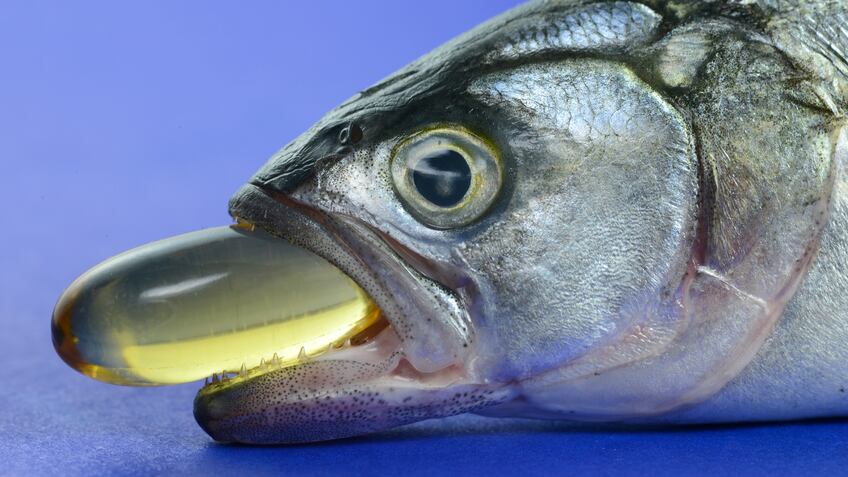The study, funded by the Australasian Research Institute and published in the International Journal of Food Sciences and Nutrition, reported that fish oils are easily oxidised to form primary and secondary oxidation products. As such, consuming fish oil could turn out to be harmful to humans.
The researchers also referenced recent studies on how fish oil supplements sold in Australasia are oxidised above permitted global limits.
Some studies, on the other hand, have reported low oxidation levels in such supplements.
Researchers at the Australasian Research Institute, University of Sydney and University of New South Wales conducted a study using peroxide and p-anisidine values determination to measure primary and secondary oxidation of fish oils in the Australian market.
Something smells fishy
They tested a total of 26 fish supplements that were sold in major retail outlets in Australia, excluding any possible candidates that were found to have added colouring, or to contain other types of marine oils, such as salmon or krill oil.
Supplements containing added ingredients like glucosamine, primrose oil and / or vitamin D were also excluded from the study, as they would have given an inflated para-Anisidine Value (pAV).
Nine of the 10 the fish oil products that had been examined in an earlier study were included, alongside a representative sample of major fish oil supplement brands sold in Australia, all purchased from major pharmacies in the country.
Based on international recommendations, they found that 38% exceeded the primary oxidation limit, 25% the secondary oxidation limit, and 33% the total oxidation limit.
In addition, four specially marketed supplements were said to contain significantly less fish oil per capsule (165mg versus 577mg), but cost significantly more per gram ($2.97 versus $0.39).
Still, in terms of oxidative markers, there were no differences between those four products and regular supplements.
A perplexing problem
The researchers noted that the supplements that exceeded the oxidation markers could have been within the acceptable oxidation limits at the time of manufacturing. They could have oxidised further after manufacturing, as fish oil is known to oxidise rapidly in storage, especially when light exposure is involved.
They added that it was "perplexing that storage in darkness and at low temperatures is recommended for bulk fish oil before and during manufacture, yet no such recommendation exists for finished encapsulated fish oil products".
Furthermore, the study reported that "somewhere along the supply chain, oxidation of a significant percentage of commercially available fish oil products to an unacceptable level does occur".
This would necessitate further investigation into optimal but feasible batching, transport and storage conditions, to ensure minimal oxidation throughout the supply chain, thereby benefiting the end user.
A study in supplementation
While Australian guidelines call for an average daily intake of 500mg of EPA and DHA — preferably from oily fish or omega-3 supplements — the general population tends to consume less than the recommended daily amount required to lower chronic disease risk, according to the National Health and Medical Research Council.
Due to fish oil's vulnerability to oxidation, however, even having the recommended daily amount may pose health problems to consumers.
The researchers concluded: "Supplementation is a cheap, quick and easy way of increasing one's omega-3 polyunsaturated fatty acid (PUFA) intake. Yet the evidence for the benefits of fish oil supplementation for the general population remains unclear due to poor evidence from RCTs. So too, the evidence for the effects of long-term exposure to lipid oxidation products is poor.
"However, the current body of evidence suggests long-term exposure to lipid oxidation products in the doses seen in fish oil supplements are likely to have deleterious effects on inflammation, oxidative stress and lipid metabolism.
"To tease apart the effects of fish oil and the effects of oxidation products, RCTs should routinely report the oxidative state of the supplement administered, and seek to minimise a subject's exposure to oxidation products from fish oil.
"Clinical trials also need to better control background omega-3 PUFA intake and exclude subjects with high baseline intake to allow for distinct characterisation of the effects of fish oil supplementation. More research is needed to elucidate methods to produce efficacious, stable, non-oxidised omega-3 PUFAs to increase population omega-3 PUFA intake."
Counterpoints
GOED, however, released a statement countering the study's claims. It said that since most of the tested products were in compliance with the Therapeutic Goods Administration's (TGA) standards, it was "not in agreement with the authors' conclusions that 'consumers are at risk in one in three purchases of exposing themselves to primary and / or secondary oxidation products when consuming fish oil supplements'".
The organisation mainly took umbrage at its Voluntary Monograph being used as the study reference, which suggested that "GOED's Voluntary Monograph limits are applicable in Australia and that there are only 26 products available in the Australian market".
It added that while GOED members were subjected to the limits set by the Monograph, regulations applicable to finished products in any given country were determined by the relevant local authorities, as opposed to the voluntary limits of GOED members.
GOED also noted that 46% of the tested products "failed at least one of the GOED Monograph limits for oxidative quality". However, it added that these products may not have exceeded oxidation limits at the time of manufacturing but rather, during transit and / or storage in possibly inappropriate conditions.
It also acknowledged that the study seemed to have been "executed correctly", and that it suggested that the quality of most fish oil supplements sold in Australia were acceptable by TGA standards, with "room for improvement in quality" for some products.



